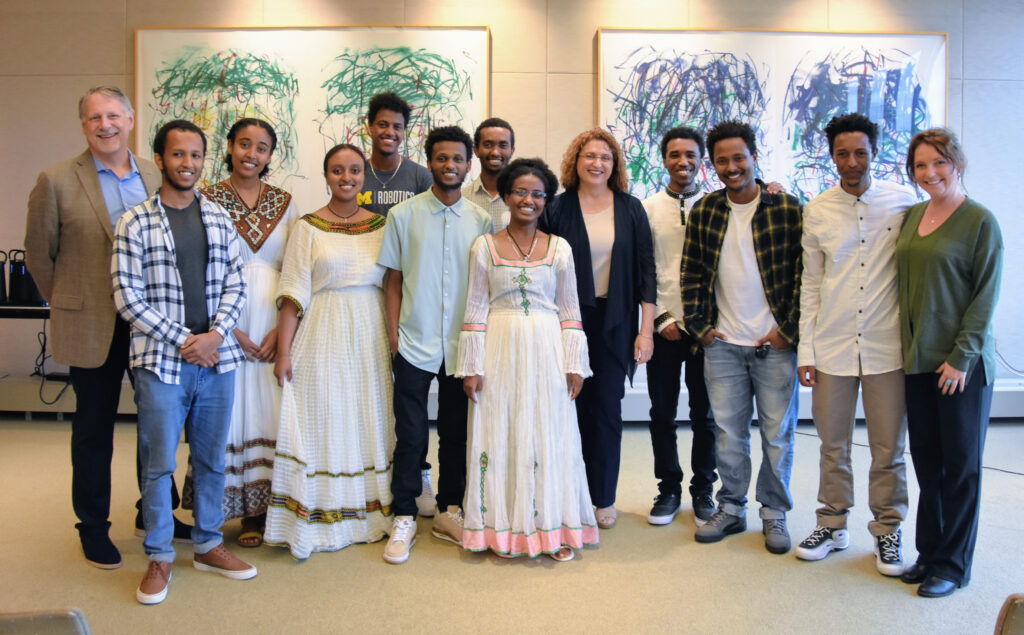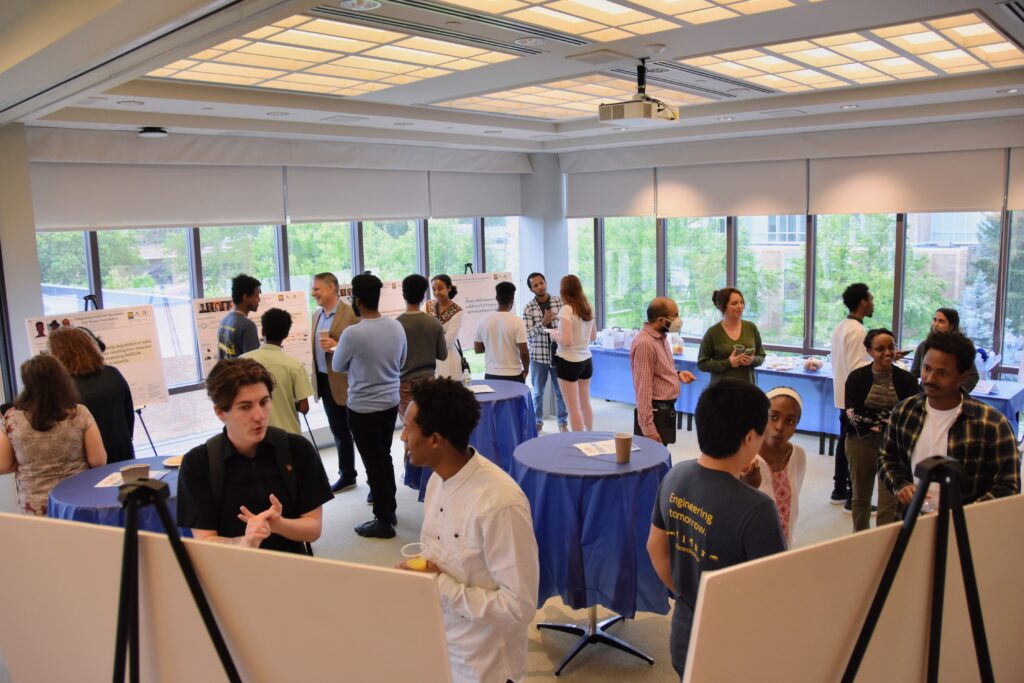African research exchange program celebrates fifth annual cohort

Twelve undergraduate students from Ethiopia recently completed a 12-week research exchange program across various engineering units at the University of Michigan. The cohort came to U-M as part of the African Undergraduate Research Adventure (AURA) program, which targets students at African universities in the lead-up to their final year of undergraduate study. Students selected for the program come to Ann Arbor for a summer-long experience during which they engage in research in the lab of a U-M College of Engineering faculty member.
“The goal of the program is to foster collaboration between U-M and African institutions,” said Valeria Bertacco, Mary Lou Dorf Collegiate Professor of Computer Science and Engineering and AURA program founder. “We also want to break down barriers for African students and give them the inspiration and opportunity to pursue research-focused careers.”
This year’s cohort hailed from Addis Ababa University and Addis Ababa Institute of Technology, where they are pursuing degrees in various engineering disciplines. During their time at U-M, the AURA students participated in research projects across a variety of units, including computer science, robotics, mechanical engineering, and more. In addition to being paired with a faculty advisor in their area of interest, participants worked closely with PhD mentors who guided them through the research process.
“AURA students are given the chance to contribute in substantive, meaningful ways to research projects in a number of disciplines,” said Todd Austin, S. Jack Hu Collegiate Professor of Computer Science and Engineering and AURA program co-founder. “They gain invaluable research experience, and we benefit enormously from their diverse perspectives.”
The research projects this year’s cohort worked on include:
- Measuring the effect of liquid electrolytes on performance of electrolyte gated transistors (Electrical Engineering)
- Integrating ceramic membranes into redox-flow batteries (Mechanical Engineering)
- A carbon-aware scheduler to minimize the carbon footprint of computing (Computer Science and Engineering)
- AI-enhanced medical training: A closed-loop communication annotation tool (Computer Science and Engineering)
- Smart manufacturing and industry (Robotics)
- SYNGEN: A synthetic machine learning dataset generator and expander (Computer Science and Engineering)
- Machine learning for robot path planning (Robotics)
- Synchronous programming and Verification with Refinement Types (Robotics)
- Formal verification of processor robustness against silent data corruptions (Computer Science and Engineering)
- Human-autonomous vehicle interaction and teaming (Robotics)
- Leveraging loop optimizations in data oblivious algorithms (Computer Science and Engineering)
- Privacy-enhanced computer architectures: Introducing axiomatic concurrency into the HardKAT compiler (Computer Science and Engineering)
This summer’s AURA participants concluded the program with a celebration of their research achievements. The closing event included presentations from the students on their respective projects as well as reflections on their experience. In addition to the valuable research experience they gained, the students cited the diversity of people and cultures, the food scene, and a day trip to Cedar Point as highlights of their stay in Ann Arbor.

“We are so proud of this year’s AURA cohort,” said Prof. Bertacco. “They’ve accomplished so much during their summer at U-M, and we hope this experience gives them the foundation for a future in research.”
More information about this year’s participants and their research projects can be found on the AURA program website.
 MENU
MENU 
